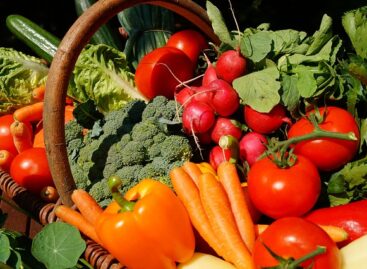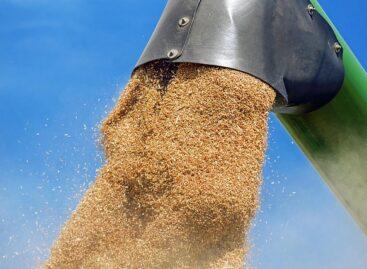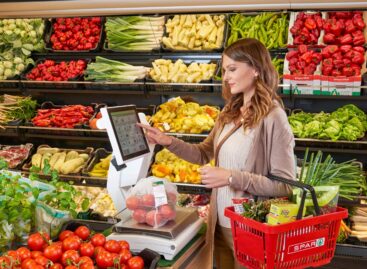Hungarian agricultural professional organizations are asking the EU to limit grain imports from Ukraine again
At the farmers’ demonstration in Záhony organized by the Association of Hungarian Farmers’ Unions and Farmers’ Cooperatives (Magosz) and the National Chamber of Agriculture (NAK), it was announced that Magosz and the NAK – with the support of other professional organizations – will write an open letter to the President of the European Commission, in which the ban on the import of Ukrainian grain they request a review of the suspension and re-ordering of the restriction. In the letter addressed to Ursula von der Leyen, they wrote that they represent hundreds of thousands of Hungarian farmers and producers – MTI was informed on Monday.

(Photo: Pixabay)
“It was not enough that the failed EU sanctions, the energy crisis and the increased costs of input materials caused a trying hardship for Hungarian farmers, the European Commission erroneously abolished the customs duties on Ukrainian agricultural products. The EU deceived the farmers, abused their solidarity, with the good intentions of farmers, so that the products of war-torn Ukrainian farmers reach the people of Africa who also have a difficult fate,” they wrote. Due to the ill-considered measures, the Ukrainian grain blocked the Eastern and Central European markets, caused enormous market uncertainty and a drastic drop in producer prices, they pointed out in the open letter. They added: Hungarian farmers will suffer a loss of at least 300 million euros in the case of winter wheat alone, and the outlook is no better for other crops. They called it unacceptable that the import ban was not extended despite the requests of Hungary and several other affected countries. The European Commission has thus betrayed the farmers who guarantee the food security of EU citizens, they wrote.
They pointed out that the lifting of the import ban does not help the war-torn Ukrainian people, but serves the interests of international big capitalists. 9 of the 10 largest Ukrainian agricultural enterprises are not registered in Ukraine, but belong to the interests of American and Western European capital funds.
It is outrageous and completely distorts competition, according to the letter, that while extremely strict environmental protection and animal welfare conditions are imposed on farmers in the EU, imports to the EU do not have to comply with these rules. In Ukraine, products are produced using methods that have long been banned in the EU, from certain pesticides to certain animal husbandry technologies. Based on all of this, they demand in the letter that the ban on the import of Ukrainian grain be ordered again and that it be extended to other agricultural and food industry products as well. They are also asking to take steps to stabilize the market, as well as to compensate the losses of Hungarian farmers, because the “symbolic amount” of compensation of 15.9 million euros does not provide meaningful help. The environmental protection and phytosanitary regulations for EU production should also be observed for Ukrainian products, they wrote. At the same time, they indicated that they support the decision of the Hungarian government, which extended it within national jurisdiction and extended the import ban to other Ukrainian products – such as honey, certain types of meat and eggs – because imports from Ukraine are not only in the grain, but also in other product fields. caused serious problems.
MTI
Related news
The amount of the compensation fund has been increased
🎧 Hallgasd a cikket: Lejátszás Szünet Folytatás Leállítás Nyelv: Auto…
Read more >The government is also helping micro and small farmers in agriculture with new, fixed 3% loans
🎧 Hallgasd a cikket: Lejátszás Szünet Folytatás Leállítás Nyelv: Auto…
Read more >Wheat producer price in Hungary decreased by a quarter
🎧 Hallgasd a cikket: Lejátszás Szünet Folytatás Leállítás Nyelv: Auto…
Read more >Related news
MBH Analysis Center: The Hungarian economy may accelerate again in 2026, but the Iranian war carries serious risks
🎧 Hallgasd a cikket: Lejátszás Szünet Folytatás Leállítás Nyelv: Auto…
Read more >SPAR is preparing for an Easter rush: it is filling its stores with 570 tons of smoked meat products
🎧 Hallgasd a cikket: Lejátszás Szünet Folytatás Leállítás Nyelv: Auto…
Read more >Focus on the domestic fishing sector at SIRHA Budapest
🎧 Hallgasd a cikket: Lejátszás Szünet Folytatás Leállítás Nyelv: Auto…
Read more >









